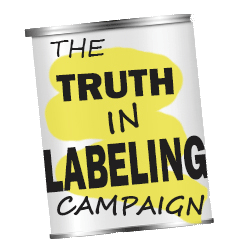You won’t find researchers in the United States publishing articles even suggesting that monosodium glutamate (MSG) might induce toxicity. And you won’t hear about research telling of MSG toxicity in most U.S. media outlets, either. The following is from a study out of Turkey. We found it at PubMed.gov.
“In this study, the toxic effects of monosodium glutamate (MSG), which is the sodium salt of glutamic acid and used as a flavor-enhancing additive in foods, and the protective role of cape gooseberry (Physalis peruviana L.) extract against these effects were investigated using Allium cepa L. test material with physiological, cytogenetic, and biochemical parameters. In the study, physiological changes were evaluated by determining root length, weight gain, and rooting percentage; genetic changes were evaluated by chromosomal abnormalities, micronucleus (MN) formation, mitotic index ratio (MI), and DNA damage. Oxidative stress was evaluated by determining the levels of malondialdehyde (MDA), glutathione (GSH), superoxide dismutase (SOD), and catalase (CAT). Further, the relationships between oxidative stress and other parameters in the study were investigated. The antimutagenic effect of P. peruviana L. extract was evaluated as inhibition caused by MSG-induced chromosomal abnormalities (CAs) and DNA damage. In the study, six groups, including one control and five applications, were formed. The bulbs of Allium cepa L. in the control group were treated with tap water; the bulbs in the administration groups treated with 1000 mg/L MSG, 125 mg/L, and 250 mg/L concentrations of P. peruviana L. extract and MSG (1000 mg/L) in combination with P. peruviana L. extracts (125 mg/L and 250 mg/L) for 72 h. At the end of the application, compared to the control group, MSG application caused decreases in rooting percentage, weight gain, root length and MI, increases in frequencies of MN formation, chromosomal abnormalities, and DNA damage. In the biochemical analysis, it was determined that there were increases in MDA, SOD, and CAT levels and a decrease in GSH level. P. peruviana L. extract ameliorated MSG toxicity by showing improvement in all these parameters depending on the application concentration. As a result, considering the toxic effects of MSG, it has been understood that the use as a food additive should be abandoned and the use of P. peruviana L. in addition to daily nutrition has been found to be a good antioxidant nutrient in reducing the effects of exposed toxic substances.”
The Turkish researchers aren’t the only ones – others have warned of MSG toxicity:
Hermanussen: https://pubmed.ncbi.nlm.nih.gov/14513871, https://pubmed.ncbi.nlm.nih.gov/16132059/;
Stover: https://pubmed.ncbi.nlm.nih.gov/10548216/;
Nakanishi: https://pubmed.ncbi.nlm.nih.gov/18178378/;
Chakraborty: https://pubmed.ncbi.nlm.nih.gov/30273089/;
Hernández, Bautista: https://pubmed.ncbi.nlm.nih.gov/30597304/;
Sharma: https://pubmed.ncbi.nlm.nih.gov/26493866/;
Ataseven: https://pubmed.ncbi.nlm.nih.gov/26929995/;
Kayode: https://pubmed.ncbi.nlm.nih.gov/31979139/;
Hajihasani: https://pubmed.ncbi.nlm.nih.gov/32489556/;
Dixit: https://pubmed.ncbi.nlm.nih.gov/24188378/;
Onaolapo: https://pubmed.ncbi.nlm.nih.gov/27312658/;
Niaz: https://www.ncbi.nlm.nih.gov/pmc/articles/PMC5938543/
With the exception of the close to 50 year’s work of Olney, and the exception, Dose dependent toxicity of glutamic acid: A review (written by someone who does not depend on government or industry funding), studies on the subject of MSG published in the U.S. are rigged by glutamate-industry interests to come up with negative results, i.e., no reactions found following ingestion of MSG. We’ve written about this previously. Often subtle in their use of devious methodology, one easy to understand tactic is the use of excitotoxic – brain damaging –aspartic acid (found in aspartame) in what researchers called “placebos” used in double-blind studies – making these placebos guaranteed to cause the same reactions as those caused by MSG.
To cite the article above from Turkey:
Acar, A. Ameliorative effects of cape gooseberry (Physalis peruviana L.) against monosodium glutamate (MSG)–induced toxicity: genetic and biochemical approach. Environ Sci Pollut Res (2021) https://doi.org/10.1007/s11356-020-11800-1.
If you have questions or comments, we’d love to hear from you. And if you have hints for others on how to avoid exposure to MfG, send them along, too, we’ll put them up on Facebook. You can also reach us at questionsaboutmsg@gmail.com and follow us on Twitter @truthlabeling


